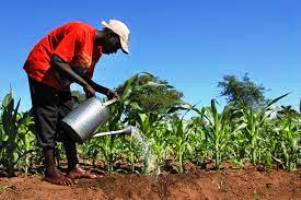The Nigeria Young Farmers Network (NYFN) has advised the Federal Government to divert large percentage of funds saved from fuel subsidy withdrawal to National Agricultural Development Fund (NADF).
Dr Abubakar Musa, the National President of the organisation, gave the advice in a statement made available to newsmen in Abuja on Tuesday.
Musa said that this would foster sustainable agricultural practices and support the growth and development of the nation’s agricultural sector and enhance food security.
NADF is aimed at giving critical financial support that would facilitate rapid and sustainable growth in various aspects of the nation’s agricultural sector for the benefit of all citizens.
NADF signed into law by the immediate past administration has as part of its functions provision of money to support agricultural development taking into consideration food production and food security in all ramifications.
These include crop production, livestock, fisheries, poultry and agro-forestry.
Musa, who said that the Tinubu administration took a bold step to withdraw fuel subsidy, commended the government for the action.
The president, who emphasised the importance of agriculture in the nation’s economy, implored the federal government to invest in its long-term sustainability.
“The diversion of the fuel subsidy payments to the National Agricultural Development Fund will enhance agricultural productivity, promote technological advancements and improve the livelihoods of farmers across the country.
“The funds redirected from subsidies should be allocated to various key initiatives within the agricultural sector.
“These initiatives may include, research and development: investing in research programmes to enhance crop varieties, improve farming techniques and develop innovative solutions that address agricultural challenges,” he said.
Musa said that diversion of subsidy withdrawal payments to NADF would support agriculture programmes through the provision of financial assistance, training, and resources to small-scale farmers, to enhance their productivity and ensure sustainable agricultural practices.
He listed other areas to includes investing in critical agricultural infrastructure such as irrigation systems, rural roads, storage facilities and processing centres to facilitate efficient value chain management and post-harvest losses reduction.
“I emphasise that this diversion of funds does not signify the abandonment of the need to address the concerns and welfare of the people.
”It is rather, a strategic reallocation of
resources to address the long-term needs of the agricultural sector which ultimately benefits the entire nation.
“We believe that this decision will contribute significantly to the realisation of our agricultural potential, food security, rural development, and economic diversification, ” he said.
Musa further said that it was the collective
responsibility of both government and stakeholders to ensure that Nigeria’s agricultural sector thrives,
providing sustainable livelihoods for young farmers and contributing to the overall economic growth of the country.



